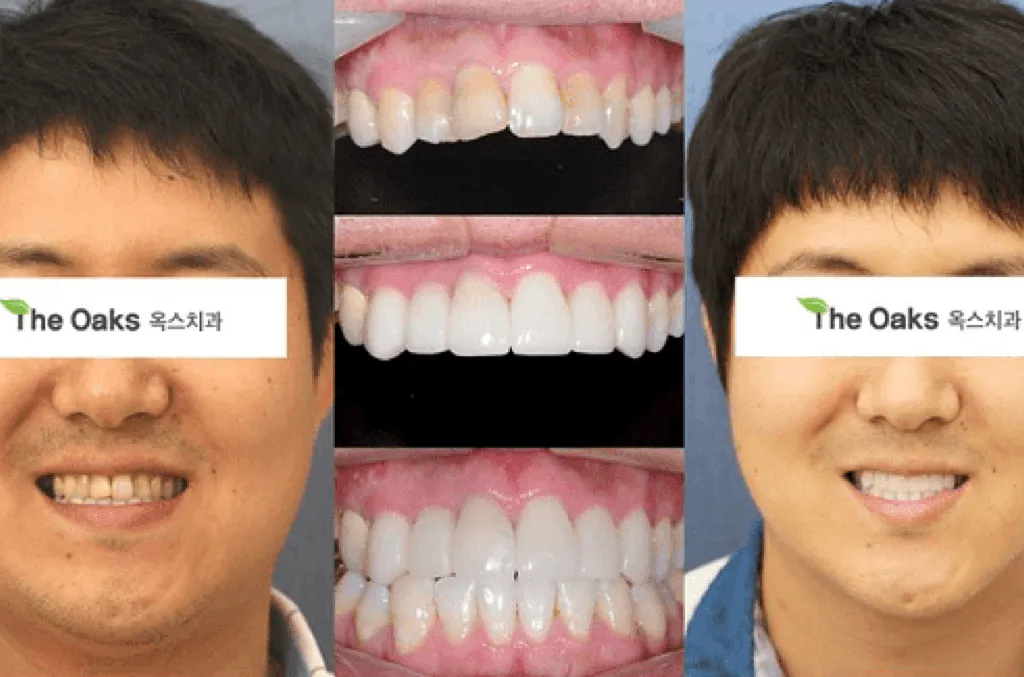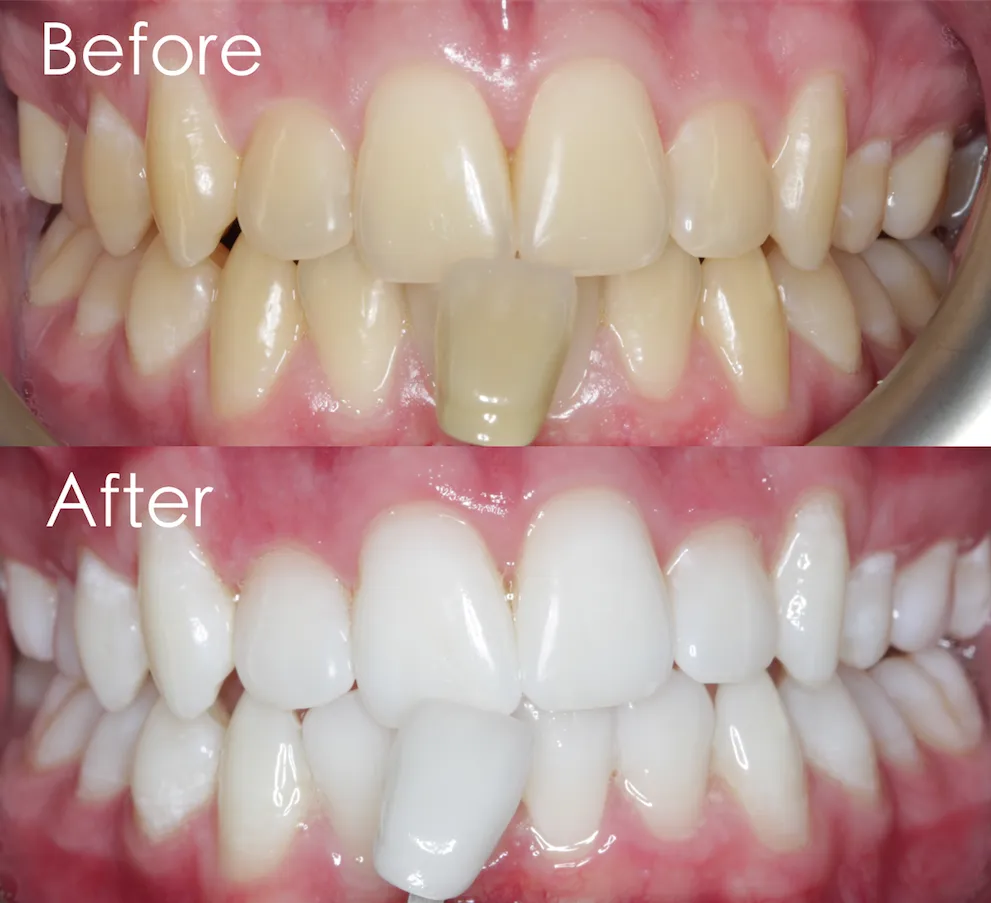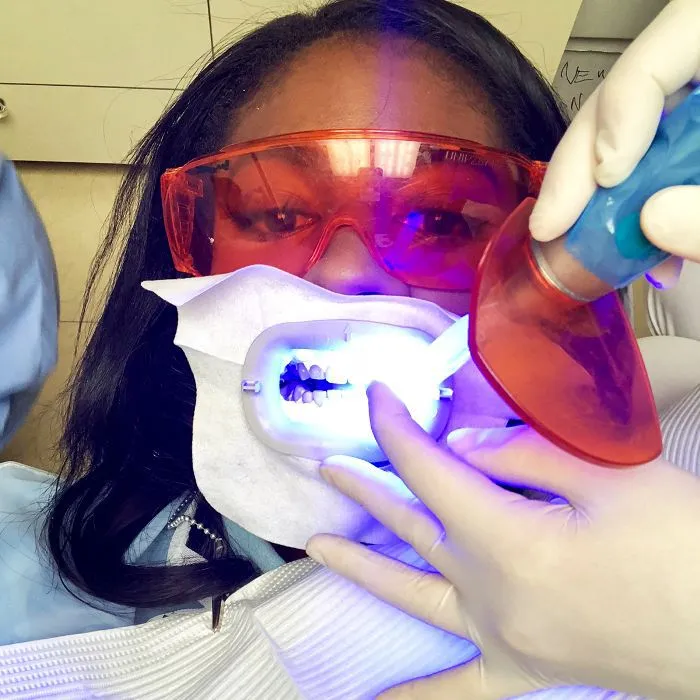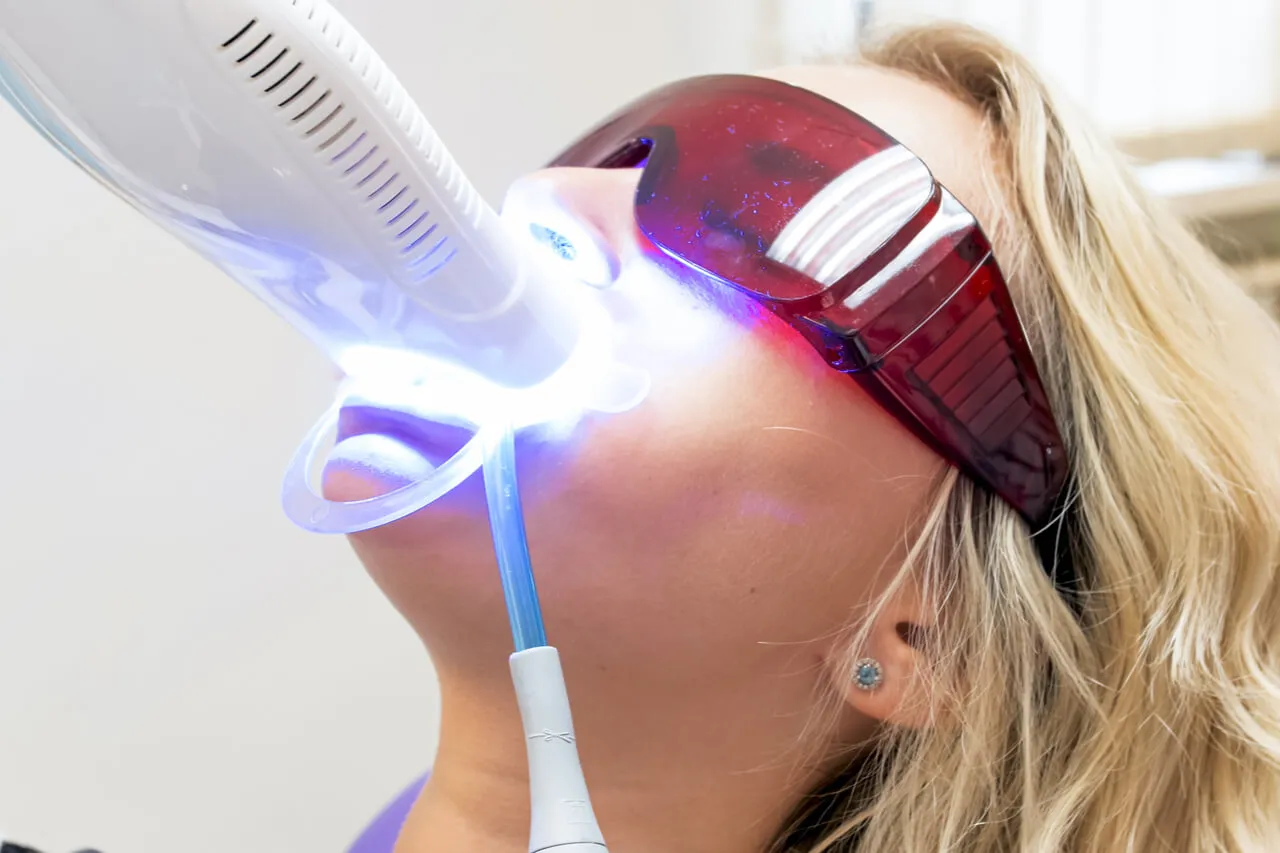What is Laser Teeth Whitening?
Laser teeth whitening, also known as power bleaching or in-office whitening, is a cosmetic dental procedure designed to brighten the shade of your teeth. It involves the use of a high-concentration bleaching agent, typically hydrogen peroxide, which is applied to the teeth. The process is accelerated by shining a laser light onto the teeth, which activates the bleaching agent and helps to break down stains and discoloration. This procedure is often chosen for its ability to deliver quick results, as the entire process usually takes about an hour to complete in a dental office. It is important to understand the process and potential risks before considering this type of teeth whitening. Laser teeth whitening is generally considered safe when performed by a qualified dental professional. However, like any cosmetic procedure, it does come with potential risks and side effects that patients should be aware of.
The Process of Laser Teeth Whitening
The process of laser teeth whitening involves several steps. Initially, a dental professional will assess your teeth and gums to ensure you are a suitable candidate for the procedure. This evaluation helps to identify any existing dental issues that might need to be addressed before whitening. The gums are then protected with a special barrier to prevent irritation from the bleaching agent. Next, the bleaching agent, usually a hydrogen peroxide solution, is applied to the surface of the teeth. A laser or special light is then directed at the teeth, which activates the bleaching agent and speeds up the whitening process. The laser emits a specific wavelength of light that helps to break down the stains and discoloration on the teeth. The process is typically repeated in intervals, and the entire procedure usually takes about an hour. After the treatment, the dentist will remove the protective barrier, clean your teeth, and provide aftercare instructions.
Potential Risks of Laser Teeth Whitening

While laser teeth whitening can be an effective way to enhance your smile, it’s important to be aware of the potential risks involved. The following sections will delve into the most common side effects and complications that can arise from this procedure. Understanding these risks is crucial for making an informed decision and ensuring you discuss any concerns with your dentist before proceeding. Being well-informed can help you manage expectations and prepare for any potential discomfort or issues that might occur after the treatment. Your dentist can also provide guidance on how to minimize these risks and ensure the best possible outcome for your teeth whitening experience.
Tooth Sensitivity
Tooth sensitivity is one of the most common side effects of laser teeth whitening. Many individuals experience a temporary increase in sensitivity to hot and cold foods and drinks following the procedure. This occurs because the bleaching agents can penetrate the enamel and reach the dentin, which contains nerve endings. The intensity of the sensitivity can vary, ranging from mild discomfort to sharp, shooting pains. This sensitivity typically subsides within a few days to a couple of weeks as the teeth recover. Your dentist can offer various solutions to manage the sensitivity, such as prescribing a high-fluoride toothpaste, recommending desensitizing agents, or suggesting over-the-counter pain relievers. It is crucial to inform your dentist if you experience significant sensitivity so they can provide appropriate treatment and ensure your comfort.
Gum Irritation
Gum irritation is another potential risk of laser teeth whitening. The strong bleaching agents used during the procedure can sometimes irritate the gums, leading to inflammation, redness, and swelling. This can happen if the protective barrier applied to the gums is not perfectly sealed or if the bleaching agent comes into contact with the gum tissue. In most cases, gum irritation is mild and resolves within a few days. However, more severe cases might require treatment, such as the application of soothing agents or the use of anti-inflammatory medications. Your dentist will take precautions to minimize gum irritation, such as carefully applying the protective barrier and monitoring the procedure. If you notice any unusual gum discomfort or changes after the treatment, it is essential to contact your dentist for advice.
Enamel Damage

While rare, there is a risk of enamel damage from laser teeth whitening. The high concentration of hydrogen peroxide in the bleaching agent can, in some cases, weaken the enamel, making the teeth more susceptible to damage. This risk is higher if the procedure is performed too frequently or if the bleaching agent is used at a concentration that is too high for your specific case. Enamel damage can lead to increased sensitivity, cavities, and discoloration. Dentists take measures to prevent enamel damage by carefully assessing the patient’s oral health, using appropriate concentrations of bleaching agents, and monitoring the process closely. If you have concerns about enamel damage, discussing this with your dentist before undergoing the procedure is advisable to ensure that they will take the necessary precautions to protect your teeth.
Uneven Whitening
Uneven whitening is a possible outcome of laser teeth whitening. This can occur when the bleaching agent does not penetrate the teeth evenly, leading to variations in shade across the tooth surfaces. Factors such as the thickness of the enamel, the presence of existing dental work, and the type of stains can affect the uniformity of the whitening. In some cases, certain areas of the teeth may whiten more effectively than others, resulting in an uneven appearance. Your dentist can take steps to minimize uneven whitening, such as adjusting the application of the bleaching agent or using different techniques. If you notice uneven whitening after the procedure, your dentist may recommend touch-up treatments or other cosmetic procedures to achieve a more consistent result. Be sure to communicate your expectations to your dentist before the procedure so they can manage and achieve desired results.
Allergic Reactions
Although rare, allergic reactions to the bleaching agents or other materials used during laser teeth whitening can occur. These reactions can manifest as skin rashes, swelling, or difficulty breathing. If you have known allergies, it is essential to inform your dentist before undergoing the procedure so they can take precautions to minimize the risk of an allergic response. This may involve using alternative products or conducting a patch test to ensure that your body tolerates the materials. In case of an allergic reaction, immediate medical attention is required. Your dentist is trained to recognize and manage allergic reactions and can provide prompt treatment. Always communicate any known allergies to your dentist so that they can personalize the procedure.
Other Potential Risks

Besides the risks, laser teeth whitening may also present other potential complications. One possibility is the development of white spots on the teeth, which can occur due to dehydration or changes in the tooth’s mineral content. These spots are usually temporary and disappear within a few days. Another risk is the potential for the bleaching agent to interact with existing dental work, such as fillings or crowns, which can result in discoloration or changes in the appearance of the restorations. Additionally, individuals with sensitive teeth or gums may experience heightened discomfort during and after the procedure. Discussing any concerns about these risks with your dentist before the procedure is advisable to help you make an informed decision and to ensure that your treatment is tailored to your specific needs.
Who Should Avoid Laser Teeth Whitening?
Not everyone is a suitable candidate for laser teeth whitening. Certain individuals should avoid this procedure to prevent complications or unsatisfactory outcomes. Pregnant or breastfeeding women are generally advised to postpone teeth whitening treatments due to the potential impact on their health. People with sensitive teeth or gums might experience heightened discomfort and should discuss alternatives with their dentist. Individuals with existing dental issues, such as cavities or gum disease, should address these problems before considering whitening, as the procedure could exacerbate the condition. Moreover, those with extensive dental work, such as fillings, crowns, or veneers, should be aware that the whitening agent will not affect these restorations, which may result in an uneven appearance. Consulting with a dentist is essential to determine if laser teeth whitening is the right choice for your specific situation.
Alternatives to Laser Teeth Whitening
If laser teeth whitening is not suitable for you, several alternative teeth whitening options are available. Over-the-counter whitening products, such as whitening strips, toothpastes, and gels, are easily accessible and can be a good option for mild staining. However, these products generally contain lower concentrations of bleaching agents and may not deliver the same dramatic results as in-office treatments. Another option is professional at-home whitening, where your dentist provides custom-fitted trays and a stronger bleaching gel to use at home. This method offers a more controlled and effective whitening experience than over-the-counter products. In some cases, other cosmetic procedures, such as veneers or dental bonding, may be recommended to achieve a brighter smile. Discussing the alternatives with your dentist can help you decide on the best option to achieve your desired results safely and effectively.
